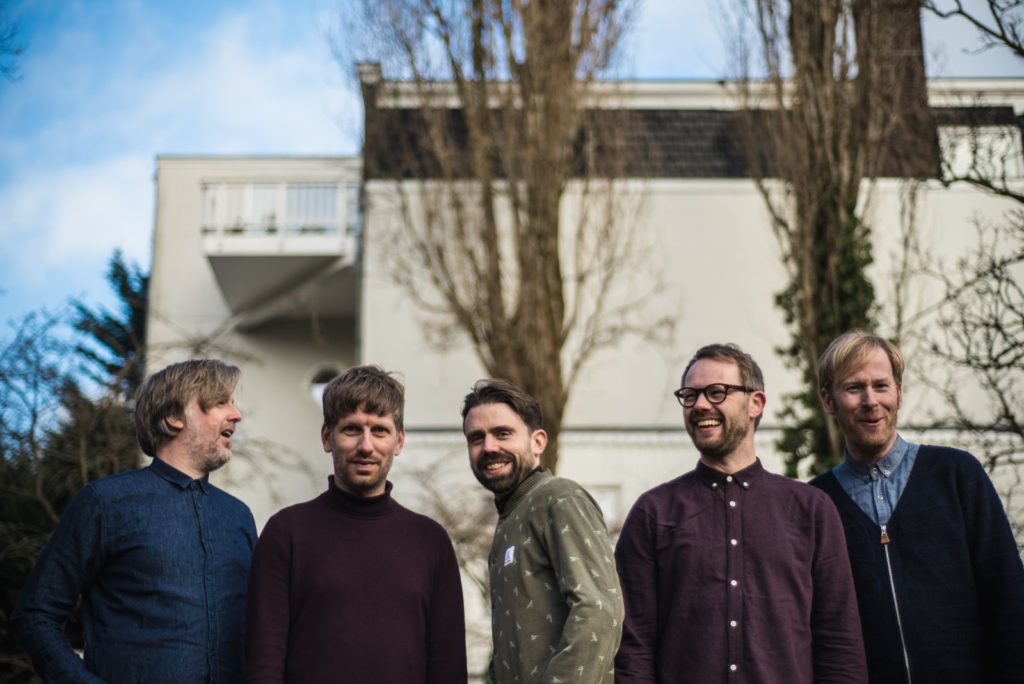Marien Dorleijn opens up in an in-depth and candid interview.
“When I finish an album I always get sick! It takes a lot of energy”! – Marien Dorleijn, Amsterdam, October 2019.
Moss are a band that have had different incarnations. Band members joining and leaving. Tension. Intensity. Passion. Their debut album was released in 2007, but after the release and accompanying tour, everything seemed a bit anti-climatic for the band. The succeeding albums became more sonically diverse – from the gritty rock sound of Never Be Scared/Don’t Be A Hero, to the more produced and layered Ornaments and the “broken” and claustrophobic feel of We Both Know the Rest Is Noise, to the resurgence of a more direct sound on the last album Strike. Dorelijn is the band’s bespectacled songwriter, guitarist and lead vocalist – writing honest, personal and emotive lyrics that depict his life, traumas, trials and tribulations.
Funny, introspective, self-deprecating and with a glowing aura, Dorleijn is generous with his time and has developed a more healthier outlook to life and music. We discuss varied topics such as death, positivity, fatherhood, tension with the drummer, Spotify and songwriting – Moss is a band that is getting better and better with each album, and deserve a much wider audience than in their Dutch homeland. I meet Dorleijn during my travels to the Netherlands.
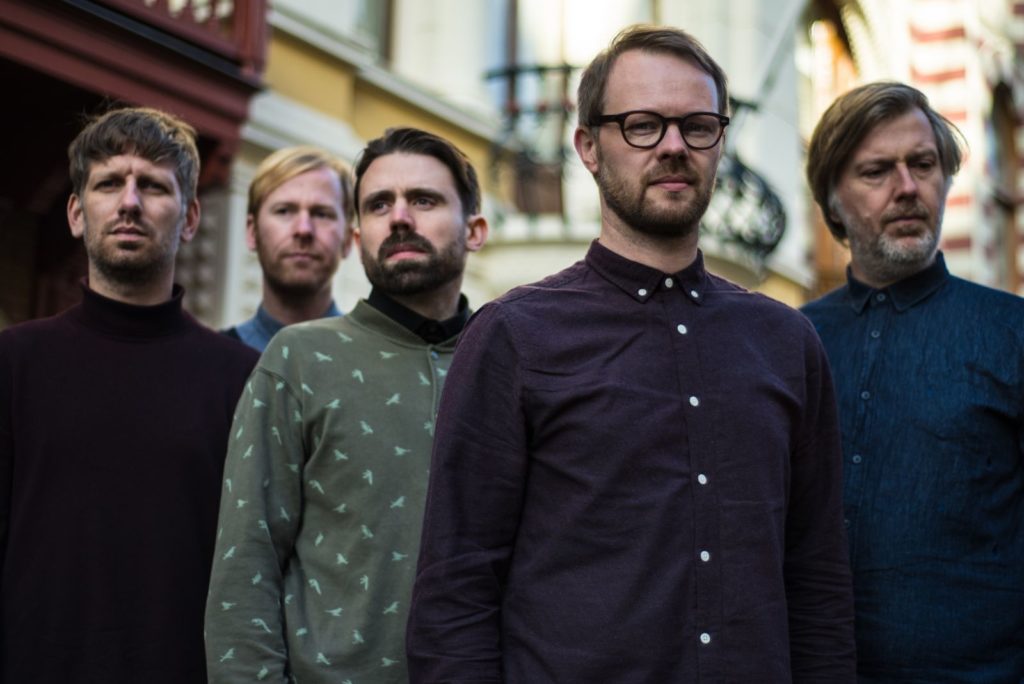
October 11. It’s raining in Amsterdam. The Extinction Rebellion, in a very polite way, are standing on pedestrian crossings, blocking traffic and causing some low-level chaos near Amsterdam Centraal. Not that cars are the main mode of transport in Amsterdam – cyclists still journey along with no interruption. The protesters are mostly millennials, and are handing out informative pamphlets on the devastation of climate change, which say “Sorry” on the front. The girl that hands me the pamphlet looks apologetic and sheepish. I take the pamphlet and utter “great work” – she awkwardly smiles and goes back to the protest.
I am on my way to meet Marien Dorlejin, 42, the lead singer of the band Moss, who happens to be in a recording studio located in an imposing building on the Van Diemenstraat. Like most of canal-filled Amsterdam, the studio sits along an impressive stretch of water. My hot pink umbrella turns inside out from the punishing wind, so I feel dishevelled and have that agitated vibe of someone stricken with jet lag.
In the recording studio, which feels cavernous, I meet Marien and the engineer Jan Schenk, where Marien is recording his vocals on the Lana Del Rey cover of ‘Video Games’ – just because it was popular with Moss fans when played at recent gigs. As he says, “just for a bit of fun”. Dorelijn is a bit shorter than I anticipated. Black rimmed glasses, furry beanie and with a face that is startlingly boy like.
After a quick tour of the studio, we gather around a table and sit on chairs, where it feels more like a homely kitchen than a studio. In the background, Jan toils away with ‘Video Games’, giving the atmosphere a surreal feel.
<Brian> When I hear your lyrics, I almost feel that I am reading your diary.
<Marien> I guess it is! In the moment when I write lyrics for an album it’s melody first and text is second.
When writing the songs, and this is coming from a person where English is my first language, do you write the songs in Dutch first or direct in English?
I write everything in English. It’s mainly because I always listen to English style music. It never came across to me to sing in Dutch. I think I once did a Christmas song in Dutch – it was horrible! It is easier for me to sing in English, because for instance, if you sing “Yeah” it’s much easier to listen than if it was in Dutch.
Do you think in Dutch? I know sometimes there are some words where there is no translation in another language. For example, there are certain German words that we adopt in English because there is no direct translation. I assume that when you are writing you are writing in an English way?
The main thing is, I think, it all has to do with TV. In the Netherlands we have subtitles, we don’t dub in Dutch. So you get used to English – for example in Germany, everything is dubbed in German. Which is terrible! I think that is the main reason why we learn English in such a fast way. My seven year old son also understands English now.
I feel rather inadequate when in Netherlands and not speaking Dutch!
No, no! Then again, when I write songs I turn on a beat and that gives me a sort of mood, and then I start playing guitar, and with that I start creating sounds. It is like gibberish. I listen back to it, and I don’t really understand what I am trying to say, but then I add words to the music. And that forms the lyrics in the end.
MOSS SOUND
To me, the real Moss sound comes from the second album (Never Be Scared/Don’t Be A Hero). The first album (The Long Way Back) seems to be more acoustic, more jangly, than the other ones. So why the change? Were you satisfied with the first album initially?
I am not originally from Amsterdam. I am from a small town in the south-west of the Netherlands. When I moved to Amsterdam, I immediately played guitar in quite a famous band in the Netherlands (called Caesar) – I only played just guitars in this band. That is when I learned the music scene pretty fast in Amsterdam – and with that I got a record deal. I had already formed Moss – we had a different drummer and even had another name – Nimbus, and then we had another drummer and then another name change! I then started recording for the record company – four songs to see what would happen – and then they gave me a year just to grow! But nothing really happened <laughs>! All the songs weren’t good enough – and then I met Finn (Finn Kruyning – the current drummer from Moss) – and then everything changed.
Finn has a very rhythmic and driving style of drumming.
Yes, he is a great drummer. And well, we got into a lot of fights over the years. And it is all for a good cause – all for our music. But he is really important for the band. For me personally, the first album is “me”. Give me all the cards and I will play acoustic – he (Finn) really spiced up the band. Our old bass player, Jasper Verhulst, was also important. The first album was nice, we spent three years in making that record.
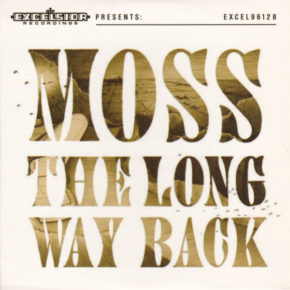
Where you touring that record?
We did. But the tour was really short. We worked three years on that album, and we did only 20 or 25 shows in the Netherlands. And then we go, “Is this it? What’s this?“
I read somewhere, not sure if it is true or not, that the second album took it only 11 days to make?
Yep!
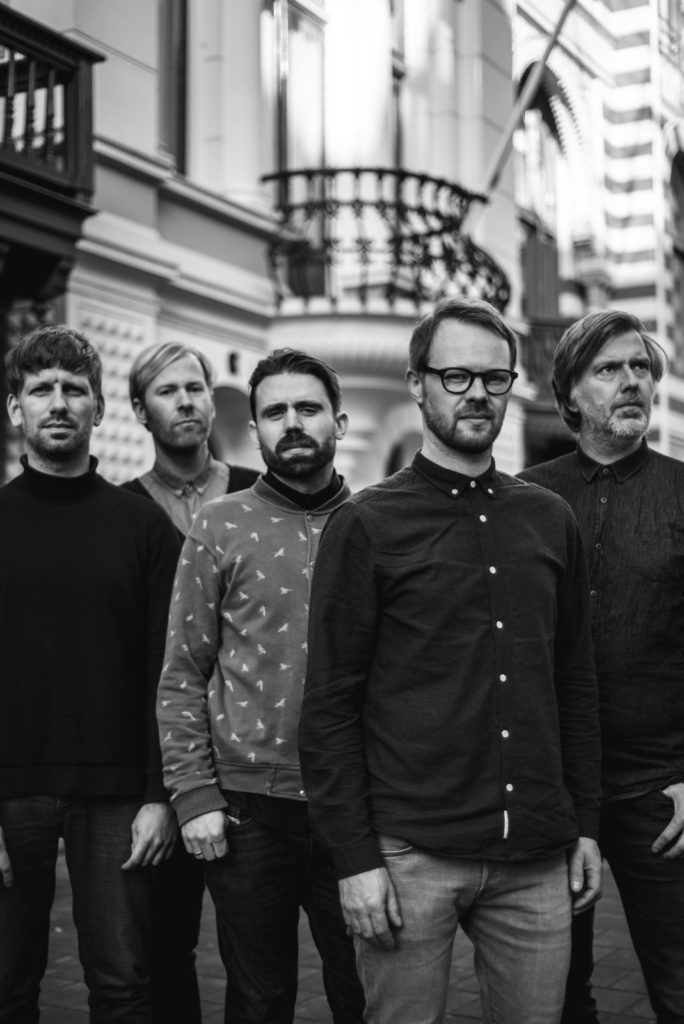
There was a gap of two years in between the first and second album. In terms of making the second album, what was the focus? Was it a bundle of intense creative energy?
The focus was that we did one record <the debut> , and the record company said, make another record. And we made that second record thinking it would be our last one.
Why was that?
Because, there were no boundaries. Because nobody told us what to do – we learnt a lot from the first album, knowing how the studio operates – so we understood how everything worked. And then it was almost like when you go to a swimming pool and swim laps – or like, I am not too sure how you would say it in English – when you are a kid you go to a swimming school – first to do the swimming instruction class and in the last five minutes you can do whatever you want – that last five minutes was the feeling we had!
Unbridled energy?
Just have fun! And that was how we felt on that second record. I discovered reverb on my vocals – which sounded really good – and it filled up a huge gap in the songs. So, we promised ourselves don’t play chords, just play single notes. The only instruments we had was two guitars, bass, drums, one piano and one synth – that’s all we used on that album. So we limited ourselves with these instruments. On the first record we did everything, ‘yeah, let’s use this guitar, let’s try this’ – they were really rich songs. So with the second album it was just limit ourselves with these instruments and see where this goes!
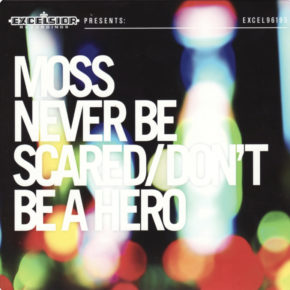
Was the eleven days just the recording or the writing as well?
It was the recording. There were songs that didn’t make the first album, and I think why didn’t we record those and put them on the first record? They are the connection on what happened on the second record. So, for an outsider, the first and second albums are like day and night.
So there was definitely a connected evolution between these two albums?
Yes, in between. We released some demos from that era – they are not the best songs – but it enables you to understand that evolution – that gap in sound we were missing. Reviewers here in the Netherlands didn’t quite understand the first record – I mean it was good, it was alright, it had great craftsmanship and songwriting. But they didn’t understand it.
I do want to get into the first album more intently, but because I listened to the second one first , it seemed easier to go to third one than go back.
Many people think that the second album is our first one! With the second we reinvented ourselves. It felt like the group was growing, becoming closer to each other – we went to England for some songwriting sessions, because our guitarist is a Brit, and we stayed there a couple of times having fun in Essex. And that’s where it all started.
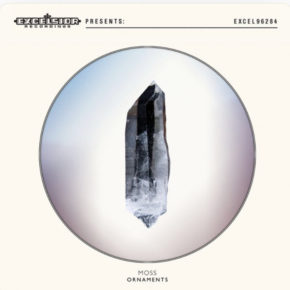
Was there pressure to make Ornaments after the second album? Ornaments is a favourite of mine.
It is one of my favourites too!
I like the way it is a bit dark. It reminds me of – I might be drawing a longbow here – to me it is akin to Kate Bush’s The Dreaming – where she became more experimental, unbridled, and the resultant was quite a dark album. It is like you guys went to the same dark place.
It was so strange – here in the Netherlands it was our most successful album. It sold more than our other albums (laughs), but we are talking nearly eight years ago! It was one of the our hardest records to make. It all happened with the end of Never Be Scared/Don’t Be A Hero – I mean, initially, on our first record we worked three years straight on it – and we toured for half a year. And then it all stopped. With Never Be Scared it took off – and we toured for two and half years.
Was that tour around Europe?
We started in the Netherlands just doing shows, and then we did Germany, France and then went to America – and we did all those showcase festivals around the world. We did everything – including a couple of tours in England – we did everything – and then two and half years later I was back in the Netherlands, and I went OK! And then our British guitar player left our band – a guy called Bob Gibson – and he was like the mediator between myself and the drummer – he is the funny guy. He makes me laugh, but he also is serious enough to work with. And he is a very limited guitar player – but a really inventive guitar player. So when he left, the dynamic changed in the band. And we had a huge gap between everyone.
<Marien rummages around for some food>
At that stage I had written a bunch of songs, during our touring, which became the demos for Ornaments. And basically we took my demos and built on those – and we did a lot of it ourselves in a studio where we worked for three months. But it was really a hard – I don’t know – sometimes you have to work at it. Compared to Never Be Scared, Ornaments is really empty – there is a lot of space, a lot of air…
But that space gives Ornaments its strength.
I think so. It took us a long time to get there. I always think that hard work pays off.
Ornaments seems to be veering away from that commercial sound of Never Be Scared – and I when I am saying commercial, I don’t mean in a gratuitous way. Ornaments is seemingly a more adult album.
If Ornaments is hi-fi, then Never Be Scared is a little bit of lo-fi. It took us eleven days to record, which wasn’t the case with Ornaments. And we had a lot of arguments and tension with each other during the recording of it.
Arguments about the direction of Ornaments?
Yes, direction of the record and sounds – for us it works in both ways – the sound is really important for us. It was really a hard time – even the shows after Ornaments was released was one of our SHITTIEST tours ever! The group dynamic was all gone. We had an inkling that our bass player was deciding to leave – he didn’t know, but we already felt that during the tour. We knew he didn’t want to be part of the group anymore. He left and started playing with Jacco Gardner – and he now plays with an alt-Turkish band called Altin Gün. He just did some support shows in the US – he is doing good! We felt during the tour that his heart wasn’t in it. We had a couple of shows with a replacement filling in his bass lines – and that intermediately felt better. And the replacement ultimately became our permanent bass player.
Some of the songs on Ornaments are very personal – encompassing the disintegration of relationships and the trauma associated with different things. Singing in front of audiences about such personal things, how do you prepare for it – is it hard?
For me it is easier to sing than to talk – like you mentioned before my songs are like diary entries – I don’t see myself as a really great lyric writer. It’s strange. I am not a native English speaker.
I think you are undervaluing your talent. I think there has a been a real progression in your writing, even in terms of your writing in English – where there seems to be a real improvement in the command of English writing – quite markedly between Never be Scared to Strike.
First of all – thank you! I think there is a lot of….maybe you are right – my writing is like a diary. It’s like a diary. And in the moment when I write lyrics, I write words that comfort me and make me feel good. And when I look back when an album is being mastered and done, and I think what I feel later, I listen to it and I go, “ohhhh…I was talking to myself”! I didn’t see it coming, but my unconscious “me ” wrote these lyrics!
Do you need a gap between writing for each album – do you need to leave the energy from the last album to focus on the next one?
When I finish an album I always get sick! It takes a lot of energy!
You mean physically sick?
Yes, I will be sick for a week or so, and I can’t listen to it. Although, Strike was the first album I can listen back everyday, from the day it was released. That album (Strike) is one big diary. You’re right!
But to me that’s a good thing. It means the writing is genuine. You seem to write about your personal experiences, your life – you don’t seem to write about say, politics.
I sometimes do write about politics – but I can cover it up a little bit – I do combine a lot of things in songs. For instance ‘My Decision’ from the last record….which is a popular song which is strange – because in terms of songwriting, I always think of A songs, B songs and C songs – A songs are the ones that you write instantly and everyone knows that this will be a single. B songs are good songs, they will be on an album, and most of the time they will be the live favourite. And the C songs have to fill the gap between the A and the B songs. I love to think my songs in terms of albums. And for me, ‘My Decision’ was a B song. Not an A song. But it took off in a real strange way. On Spotify we have the edit version – the shorter version of the original.
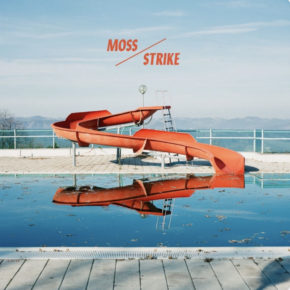
Must admit that I am a fan of the longer version – I love that extended instrumentation at the end.
Me too! But Belgian radio contacted us, because somebody asked – a listener – if they could play that song because they loved it. And they asked us if we could make an edit – because the song was a little bit too long. I went on my laptop did the edit and sent it to the guy in our agency that is responsible for Spotify and stuff. And he said, okay, make it shorter. And shorter. And then shorter! And after five or ten minutes I gave him this version (the current edit on Spotify) – and that was the version that Belgian radio used. They didn’t play it too often! But then it took off suddenly on Spotify (where it has had over 3 million plays).
What was the inspiration behind ‘My Decision’?
My father died a couple of years ago – and that’s what Strike is all about in a way – but then, I didn’t want to make an album that sounded pretty depressed – I also wanted to create a positive energy.
You have that ability of writing a dark song, but then contrasting it with a sense light.
I intentionally wanted that. So, ‘My Decision’ is about the decision my dad…well, he had cancer and at a certain point he was thinking about if his body gets worse, there is a point where he would want to be euthanised. He said it was his decision, so he said to me, “It’s my decision”. And I was like whoa…for me it struck a nerve – I knew the prognosis wasn’t good – most of the time when you have cancer, you don’t really die of the cancer, but die for all the things that happens because your internal organs just stop working – one by one. Because of the medication or because something else happens. He fell and something else happened, and he said at a certain point I want to quit. And I said OK, but that had a huge impact on me – so then I wrote that song. And I also combined that song with the word “she” , so it wasn’t obviously about my dad – so it was that emotion I took to that song.
I suppose you don’t always have to be obvious in a song.
And I didn’t want to. I have played this song a lot of times – and the first couple of times I felt really strong – like this is about my dad – a lot of energy is expelled.
I think the song is very empowering, which might be the reason why it is so popular with people. At this time (after Strike) you released the Heavy Heart EP – was that an offshoot from the album?
For us it didn’t work out. It didn’t feel good – a lot of things were happening at the time – my mother just died last year. And that EP was for her – but then again it didn’t feel… it was made while she was still living…
Was this after the Strike sessions?
Yes, it was after the Strike sessions where we worked with Jan at this studio – after we released it my mum died – and a lot of things happened, someone got sick and we couldn’t do any press – in the Netherlands no one knew about it.
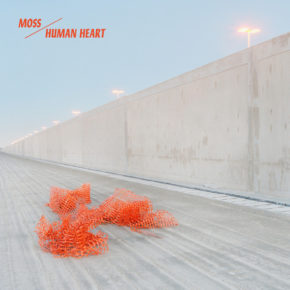
Do you get good radio airplay in the Netherlands?
No. Even the last album didn’t get airplay. I mean, ‘I Apologise’ had strong airplay for two years solid, everyday. It was like our hit song. But with the EP, I discovered that we like to think in terms of albums – like 10 or 11 songs – take that journey, have an A side and a B-side – that’s the way I love to think.
<Marien takes a break and has some spinach and goat cheese that’s wrapped in filo pastry>
I know in Australia, that a lot of artists in their 40’s and beyond find it harder to get exposure for their contemporary work. Is it the same thing here in the Netherlands?
I was 31 when Never Be Scared was released, so I already felt old <chuckles>. For me, I started playing bands when I was 13 – you know, I am late with everything. That’s the way I feel. As I band, I feel that we are getting better and better – just like a fine wine <laughs> .
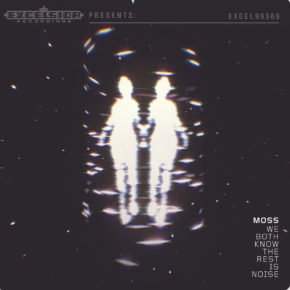
Let’s talk about the fourth album We Both Know the Rest Is Noise.
That was a pretty intense time.
Personally you mean?
Yes, yes, yes!
You can definitely feel the intensity on that albums – it almost feels claustrophobic.
At the time our bass player just left. So it was just the three of us. When Bob Gibson left we were with four – we thought that our group was so together, we didn’t need any help from outside the band – that kind of perspective. End of the third, starting with the fourth record, we were just a trio – I can play bass <laughs> and then we invited some people over, and then we met Koen van de Wardt, that also eventually left us <laughs> . Ornaments was so hard, and looking back it was pretty rough – Jasper leaving the band for me it felt as if…I mean at the time it didn’t feel like a big thing. But looking back, I can understand now…it left a huge, huge, huge gap. At the time I wasn’t feeling at ease – I was living in another town, not Amsterdam, but in Utrecht. And I had some neighbours that were complaining and stuff – it was horrible! They wanted to fight with me, but I also just had a child. And sometimes everything just becomes too big.
Where everything just cascades around you.
Yeah, where I had to engage some professional help to talk about everything. And the shrink said, “Why don’t you look for another bass player?” – and I said, you’re right! And at the time we were also more introverted as a band – you know, let’s do everything ourselves. I know it’s a bad idea and it might sound shit, but we did it all ourselves – the album feels gritty, all in our own studio or in our practice room.
We Both Know the Rest Is Noise sounds almost oppressive – there is so much darkness ebbing and flowing.
It is very dark. Also, we wanted to make the album sound like everything was broken. And that was our intention, and it took not that long to record. That is why Strike had to be different. Ten days of recording that album. And it was done as a group, with everything almost performed live. And you know, you might think that everything is recorded with a click, but we did it live. And it felt so good. It was so refreshing. Like my manager said, just open the door and let the air in again. And that’s the way we are now. We are now in a group of a bunch of people and that feels so good.
‘She’s Got A Secret’ should have been a hit.
That’s what the producer said!
What about the new album? What energy will that have?
Honestly, I already wrote an album last year. I wrote twenty-four songs, last January to March 2018. Then my mum got sicker and sicker and sicker, and then she died at the end of December. It just happened – it’s just life. She was sick, and we knew that it was going to happen – and for the first six months of the year, I did nothing. And this year, I think I only wrote one song. But the thing is, I have already written an album – the songs are just lying around – that was when my mum was alive. But now, at this stage, um, I am not in a crisis, but do I want to write a couple of new songs. So I have more songs that fits into my life today.
Is there a theme to the songs?
Well, the album is obviously about my mother <laughs>, it’s about her. I wrote a couple of songs about her – which was really hard – she was going through chemotherapy and seeing someone going from pretty good to pretty bad – and who also decided to end her life. Which I think was good for her. It’s the most humane way of death, I think. I was there when my dad died…and even my father-in-law died last year. And also a bunch of other people I know – so 2018 was a shit year!
Will these tracks end up being a Moss album or a solo thing?
No, it will end up being a Moss album in all its glory! Last year we played our last gig from the Strike tour. And we added some drummers to our live set. We played at the Paradiso here in Amsterdam – which is a huge concert hall. And were playing some Ornaments songs. Because the songs are so layered, you sometimes need some extra musicians. And I loved the way it all sounded on the stage, and I said OK, let’s make songs again in the tradition of that record. I mean we love the energy of Strike, and we initially planned to record everything before this summer <laughs>. It didn’t happen! Obviously because of the things happening in my life, so I said let’s do it after summer.
And the band are okay with that? Do the band get frustrated with the wait between albums?
No, not at all! I mean to be honest, the last ten years I have lived for music. Which is not healthy. I now have two children and a mortgage <laughs>. You know, so I have to think about the future. I am still a musician, and still love making records, which will never stop. Even with the death of my parents, it made me realise even more that I am a parent as well. So what’s important in your life? My parents where pretty important in my life. They raised me, taught me music, they influenced me with their tastes – my seven year old is drumming now, and I love it! I wanted him to play guitar, but he wanted to play drums! And that’s OK! And he sings. And I love it. And I think now, I am that parent. Now I am the one that passing through all those things to my children. It seems that ten years ago music was my most important thing in life, and now it isn’t. <laughs> It is the second most important thing in my life, maybe the third! What is important is my songwriting, so I can feel at ease writing what I want.
And that is a healthy thing. There are many artists that focus on family and doesn’t impact on the quality of their music.
I know. And as a songwriter, I changed a lot of ways in the way that I write. For instance, I once wrote at home, but now write in a studio in some fields near Utrecht. That is my personal writing studio.
It’s now like a real job!
Yes, I start at 8 in the morning, and I write until 4pm. And that is the way that Strike came together. And this is how this new record came together. I just write songs. With Strike, talking about lyrics – normally I would just make a song and would sing – no words, just melody. And that is what I used to give to the band. But now, I just want to finish everything. To finish the lyrics before presenting them to the band. There is now a lot of effort to finish those lyrics. And that is what changed, and it made me different, a different approach for me. It also gives my songs more of a theme, where they are more current.
Have you had much exposure in English speaking countries? You talk about going to the UK and the US – how was that?
The thing is – well, Spotify definitely changed the musical landscape and the accessibility to music. Before Spotify we were touring alot. We toured a lot of countries, went to the US, playing gigs – and obviously costing us a lot of money. But then again, that was the only way to expose ourselves. And let the people know who we are. So we played alot. And I mean alot!
Do you enjoy touring?
<Struggles> We will get into that later! Now it is different, because now you get a lot of attention on Spotify – and 25% our listeners are American or South American. I think it happened last year – a LA based record label wanted to release Strike, and said that we had to play live for three months in the USA. And we said, well, no! Because I have to tell my wife, that I would not bring money back, cause it takes a lot of money to get over there. I know you have to invest, but the musical landscape has just changed so much – our touring, in terms of countries is now smaller, but our influence on Spotify as in other countries, is growing.
Is Australia in your sights?
I hope! Our biggest goal always was Japan! We did the USA a couple of times. Iceland once. I loved that! But then again, in this day and age, it is now a smaller world. I mean you don’t make money out of Spotify. It is touring where you make money. We are also older now, ten years ago I would step onto a plane and tour for three months.

Which artists do you respect or get inspiration from?
There is one record from a band called Lower Dens – they made an album in 2010 called Twin Hand Movement, for me that is the record that I would have loved to have made. That is the record! And it’s so strange, she writes these amazing songs and I think discovered her at CMJ in New York. And for me that record, I still think it is so good. It is a little bit of a weird album – it is not that popular – and everything from Deerhunter I just love. Even the last record, not sure if they got a lot of attention with it.
What about growing up as a child?
I am a 90’s kid, so I just loved The Lemonheads! I was a huge fan! I actually learnt to play guitar because of Nirvana back in the 90’s. AC/DC. That kind of shit! And besides mainstream bands, I loved Pavement – and because I loved songs – my parents were really into The Beatles, so I think everything I learnt from songwriting is from The Beatles. And from The Lemonheads. And I also loved Bad Religion, because they sang really well! Even in songwriting, I still think of the Nirvana way of songwriting, I love the way of the intro, first chorus, first chorus, bridge, chorus, outro. I always think of that way of songwriting – obviously not with every song. It is just a formula that works. And it nobody says that the songs all sound the same – because they don’t.
So you know when you will start recording the new album?
No, not yet. Because we have been busy in the last weeks for our tenth anniversary of Never Be Scared gig.
How did that go?
It was a great show. Our manager recorded everything! We will do some mixing first. You know we have 70GB worth of material! I have to go through it all. A high definition record.
Was it weird singing all those songs you wrote so long ago?
Even in that order, because we never ever sang those songs in that order before. People know the songs in that order, obviously because they played that record. So it felt a bit emotional in a way – and I think order in a record is very important – the way that album works – it is so light and shiny on the A-side, while the B-side is so much darker. And it was made intentionally that way. Even that soundscape thingy in between songs. And it really worked. We put a lot of thought in that.
What was the motivation to do the tenth anniversary gig?
Initially it was done to create a big boost of attention and then drop a brand new record. But of course, the new record hasn’t even started yet. We have started practising the new songs.
Did you play any other songs on the gig that wasn’t from Never Be Scared?
We ended with ‘My Decision’ – because even in the Netherlands they know that song – well, our fans do. We also played a few Ornaments songs – most of the time we skip We Know The Rest Is Noise because it feels like a bad time in our lives. And the same with The Long Way Back – the first record. I mean, my son, asked my last year – I mean he knows what I do, sometimes he sees me on national television. Not every dad is on national television! Or he hears me on the radio, because they still play ‘I Apologise’ – he knows my job – I make records, I make songs – so on one day we played all the records on vinyl at home.
Do you ever hear your old records and be judgemental or want to re-record them?
Recently I opened up the files for Never Be Scared, and I was amazed how we got away with it! Because the way we recorded it was so gritty. Not everything is tight. Ornaments was very tight – it is like this is our computer, and this part of the process, we edited a lot things and make it all tight , and go through everything we put on it. While with Never Be Scared – it was just play and go, go , go, and all in just ten or eleven days to record. We heard the drums and they sounded a bit shitty, so should we mix this again – but why would you? That moment is that moment.

